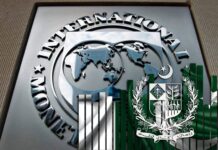The Pakistani government is in the final stages of unveiling its first-ever Petrochemical Policy, a groundbreaking initiative aimed at attracting substantial investments in the petrochemical industry, reliable sources told.
After months of consultation and rigorous deliberation, the draft policy was submitted to the Ministry in July 2023. It is currently undergoing a comprehensive review process by relevant ministries and divisions. Ultimately, the policy will be presented before the Economic Coordination Committee (ECC) of the Cabinet for final approval, the sources informed.
The policy, set to be implemented in 2023, is designed to promote the domestic manufacturing of critical petrochemical products. The policy’s development process has been marked by extensive consultation and engagement with public and private sector stakeholders. The Engineering Development Board (EDB) has played a pivotal role, collaborating closely with industry representatives, the Ministry of Industries & Production (MoI&P), and the Pakistan Chemicals Manufacturers Association (PCMA) to craft this transformative policy.
In a notable development, established local petrochemical companies, including Lucky Core Industries, Gatron-Novatex, Lotte Chemicals, Tufail Chemicals, and Engro Corp, have actively encouraged the government to formulate a long-term petrochemical policy.
This policy aims to stimulate investment in the midstream sector and reduce imports of critical chemicals. It is also said that the government’s objective is to attract approximately $3 billion in investments, signaling a strong commitment to the sector’s growth and sustainability.
It is worth mentioning that with a total local demand for petrochemicals reaching approximately $5.3 billion, the policy seeks to boost the locally manufactured petrochemicals sector, which currently accounts for $1.8 billion. To reduce the reliance on imported petrochemicals, which make up $3.5 billion of the total demand, is a central goal.
The Petrochemical Policy is poised to deliver a multitude of advantages. It will ensure a steady supply of essential raw materials for downstream sectors, bolster exports in value-added segments like textiles, reduce the trade deficit through import substitution, support the growth of small and medium-sized enterprises (SMEs) in the petrochemical downstream sector, and contribute additional tax revenue to the national exchequer.
Industry stakeholders have submitted requests for various incentives, including maintaining import tariffs on locally manufactured midstream petrochemicals, enhancing duties on intermediate and final petrochemicals once local production is established, tax exemptions for imported plant and machinery, income tax holidays, and access to low-cost financing.

























